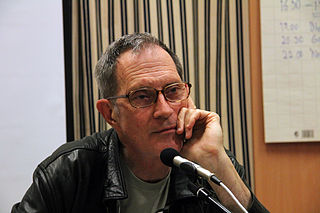A Quote by Karen Thompson Walker
My sentences got sharper and my stories more efficient, and I gradually learned to imagine the reader more clearly and to empathize with that imagined reader, which is a crucial part of learning to tell stories.
Related Quotes
The most difficult part of writing a book is not devising a plot which will captivate the reader. It's not developing characters the reader will have strong feelings for or against. It is not finding a setting which will take the reader to a place he or she as never been. It is not the research, whether in fiction or non-fiction. The most difficult task facing a writer is to find the voice in which to tell the story.
Literature for me… tries to heal the harm done by stories. (How much harm? Most of the atrocities of history have been created by stories, e.g., the Jews killed Jesus.) I follow Sartre that the freedom the author claims for herself must be shared with the reader. So that would mean that literature is stories that put themselves at the disposal of readers who want to heal themselves. Their healing power lies in their honesty, the freshness of their vision, the new and unexpected things they show, the increase in power and responsibility they give the reader.
When we stop believing in gods we can start believing in their stories, I retort. There are of course no such things as miracles, but if there were and so tomorrow we woke up to find no more believers on earth, no more devout Christians, Muslims, Hindus, Jews, why then, sure the beauty of the stories would be a thing we could focus on because they wouldn't be dangerous any more, they would become capable of compelling the only belief that leads to truth, that is, the willing, disbelieving of the reader in a well-told tale.
We must be forewarned that only rarely does a text easily lend itself to the reader's curiosity... the reading of a text is a transaction between the reader and the text, which mediates the encounter between the reader and writer. It is a composition between the reader and the writer in which the reader "rewrites" the text making a determined effort not to betray the author's spirit.
Nobody knows what will work until they try it. Some of comics' biggest success stories in recent years have explored subjects that no one was writing about at the time - stories no one had any reason to think would succeed. My advice? Write what you want to read. You'll have more fun doing it - and if all else fails, you'll always have at least one loyal reader.
I don't necessarily think stories have functions any more than diamonds have functions, or the sky has a function... Stories exist. They keep us sane, I think. We tell each other stories, we believe stories. I love watching the slow rise of the urban legend. They're the stories that we use to explain ourselves to ourselves.







































